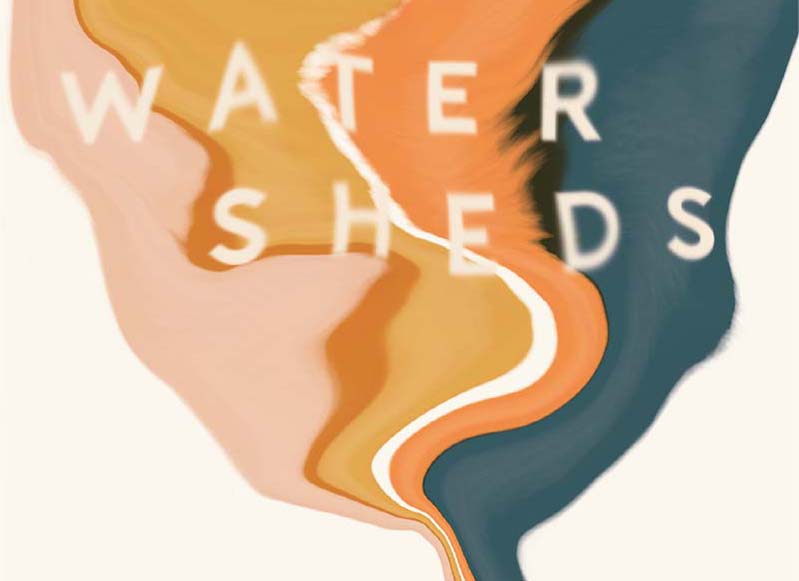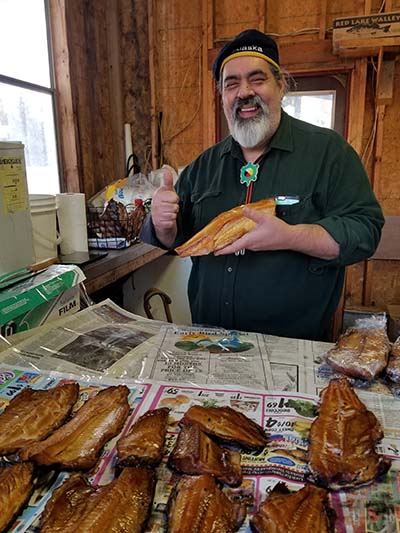
CHE Graduate Student Symposium: Watersheds
The UW–Madison Center for Culture, History and Environment (CHE) will bring together graduate student researchers, educators, and artists from multiple disciplines to examine and discuss methods, applications, theories, ideas and practices related to the theme of watersheds.
Watersheds, otherwise known as drainage basins, are places where water flows to a single point before converging into another body of water. Functionally, watersheds serve as an avenue for: the transport and storage of water, energy, organisms, sediments, and pollutants; the cycling and transformation of essential biogeochemical activities; and the process of ecological succession that circulates materials from the physical environment back into the biological.
Watersheds gather and expand, dissolve and define, blur and separate, filter and create, fill and transform. The study of these ecosystems brings to the forefront the intersections of essential ecological, hydrological, and geomorphological processes that, in turn, provide critical social, economic, and ecosystem benefits.
Beyond the study of watersheds as ecosystems, the idiom of a “watershed moment” evokes a crossroad, a defining occasion, a paradigm shift, or a milestone. The term is used to refer to monumental events that have altered cultural, artistic, social, and political as well as environmental landscapes. For example, reporting after the U.S. Supreme Court struck down Roe v. Wade, journalists with the Washington Post called the Dobbs ruling a “watershed moment” in the debate over abortion access in the United States.
Speaking before the 77th Session of the United Nations General Assembly in September, Finland’s President Sauli Niinisto, in a series of remarks condemning Russia’s invasion of Ukraine, termed the threats to international peace and security, along with the climate crisis and the ongoing Covid-19 pandemic, as “watershed moments” that demanded collective action and sustainable solutions.
In this symposium, we hope to explore the implications of watersheds in relation to both the human and more-than-human world. How does conceptualizing watersheds and watershed moments give us an opportunity to reflect on past, present, and future shifts that reroute the trajectory of individual and collective ecological positions? How do watershed connections, interruptions, and convergences offer speculative spaces of modeling, embodiment, and figuration? How might turning points, whether of water or of wedge issues, flows or philosophies, become sites of generation, curiosity, and resilience?
Schedule
All sessions will be held in Science Hall unless otherwise noted.
- 9:30 a.m.: Check-in and catered breakfast/coffee
- 10–11 a.m.: Keynote talk from Frank Bibeau
- 11 a.m.–noon: Graduate student panel #1 – “Watershed Changes”
- Noon–1 p.m.: Catered lunch and time for informal discussion
- 1–2 p.m.: Graduate student panel #2 – “Turning Points in Climate Futures, Activisms, and Landscapes”
- 2:15–3:15 p.m.: Symposium Wrap-Up: Talking and Writing the Water, Lakeshore Preserve near Memorial Union (CHE Space in case of inclement weather)
Call for Proposals
We welcome submissions from all scholars and creatives engaged in work on watersheds, both literally and figuratively conceived; we look forward to hearing from students in departments such as environmental studies, hydrology, anthropology, geology, English, film and media studies, politics, history of art, and other disciplines within both the humanities and sciences. This symposium will be hosted at the University of Wisconsin–Madison and we welcome both virtual and in-person presentations.
Keynote Speaker: Frank Bibeau
 We are thrilled to welcome keynote speaker Frank Bibeau, an enrolled member of the Minnesota Chippewa Tribe who has been living on Leech Lake Reservation in Ball Club, Minnesota, most of his life. Frank is a tribal attorney working extensively with Chippewa treaty rights, civil rights and sovereignty, on and off reservation.
We are thrilled to welcome keynote speaker Frank Bibeau, an enrolled member of the Minnesota Chippewa Tribe who has been living on Leech Lake Reservation in Ball Club, Minnesota, most of his life. Frank is a tribal attorney working extensively with Chippewa treaty rights, civil rights and sovereignty, on and off reservation.
Frank processes wild rice and smokes whitefish in Ball Club. Frank has been working with Honor the Earth, a native-led, nonprofit environmental protection group led by Winona LaDuke. Frank has developed several legal defense strategies based on the Rights of Manoomin.
Frank serves as executive director for the 1855 Treaty Authority and represented Manoomin (wild rice) and the White Earth Band of Ojibwe in Manoomin v DNR in White Earth Tribal Court and DNR v WEBO and Chief Judge DeGroat in the Eighth Circuit Court of Appeals (2021-2022).
Frank will discuss wild rice from the time of creation and migration stories, where the Anishinabe were looking for the place where the food grows on the water, food sovereignty and sustainability, and protection of natural resources in the present.
Funding for Frank Bibeau’s talk is provided by the University Lectures Knapp Fund.
